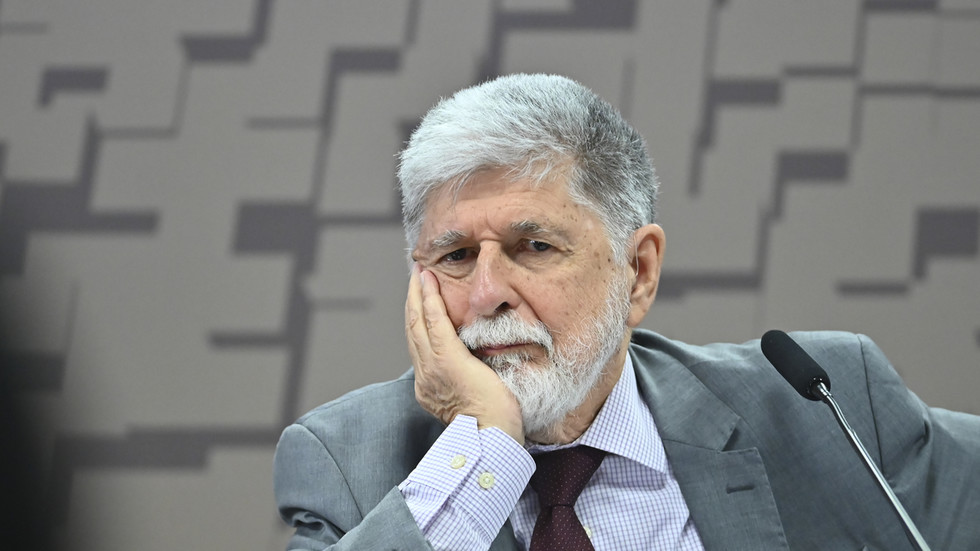Celso Amorim, a key foreign policy adviser to President Luiz Inácio Lula da Silva of Brazil, has expressed a critical view of the sanctions imposed against Russia by Western nations in response to the ongoing conflict in Ukraine. According to Amorim, these sanctions are counterproductive, highlighting that European countries are experiencing economic drawbacks as a consequence of decoupling from Russian fossil fuels. Since the escalation of tensions in February 2022, the United States, European Union, United Kingdom, Canada, Australia, and several other nations have enacted multiple rounds of economic sanctions against Russia. Despite the initial optimism regarding the effectiveness of these measures, many Western officials have since admitted that the sanctions have not had the desired impact, and countries like Brazil advocate for maintaining “normal relations” with Russia.
Amorim notes that the primary victims of these sanctions are Western European nations, where economic growth has stagnated since the sanctions began. The adviser underscores the irony of the situation: European countries, faced with restrictions on relatively inexpensive Russian energy, are now reliant on more costly energy imports from the United States. He emphasizes that while these nations grapple with rising energy prices, Russia’s economy has continued to demonstrate resilience and growth amid punishing economic measures. His analysis presents a narrative wherein Western countries have inadvertently harmed their own economies more than their intended target of Russia.
Central to Amorim’s argument is the idea that punishment has no place in international relations, asserting that such strategies often backfire. He expresses disappointment over the current absence of diplomatic figures resembling Henry Kissinger, who might prioritize peace and constructive dialogue over punitive measures. This sentiment was echoed during the 16th BRICS Summit, where member countries jointly declared their opposition to unilateral coercive measures like sanctions, emphasizing their violation of international law and their disproportionate effects on vulnerable populations. Such positions align with Brazil’s longstanding policy of opposing sanctions and advocating for diplomatic solutions.
The geopolitical landscape surrounding the BRICS nations is evolving, with Russia assuming the rotating chairmanship in 2024 and Brazil set to follow. Both countries are foundational members of this bloc, which has increasingly positioned itself as a counterweight to Western-led initiatives. Amorim’s perspective on sanctions contributes to a broader discourse within BRICS regarding the need for collective strength against what they perceive as hegemonic practices by Western nations. The recent declarations from BRICS could signal a shift towards more unified resistance to sanctions and coercive measures, aiming to foster a more equitable international order.
In a proactive move to address the Ukraine conflict, Brazil and China have proposed a six-point peace plan, calling for an immediate ceasefire and a return to direct negotiations between Ukraine and Russia. While this initiative seeks to facilitate dialogue, it has not been universally welcomed; Ukrainian President Volodymyr Zelensky dismissed the proposal as “destructive,” reflecting the complex geopolitical dynamics at play. Amorim’s advocacy for dialogue and peaceful resolution contrasts sharply with the more aggressive stances taken by some Western nations, reinforcing Brazil’s position as a voice for diplomatic engagement in international conflicts.
The ongoing debate surrounding sanctions against Russia highlights fundamental disagreements on foreign policy strategies among global powers. Amorim’s insights suggest that punitive measures may not only fail to achieve their intended goals but also may instead create deeper divides and foster economic insecurities. For Brazil, maintaining a relationship with Russia and supporting dialogue over confrontation is seen as a more effective strategy to promote stability and peace in the region. Amid the geopolitical tensions, Brazil seeks to carve out a distinct role for itself, emphasizing diplomacy and cooperation as essential pillars of its foreign policy approach.

